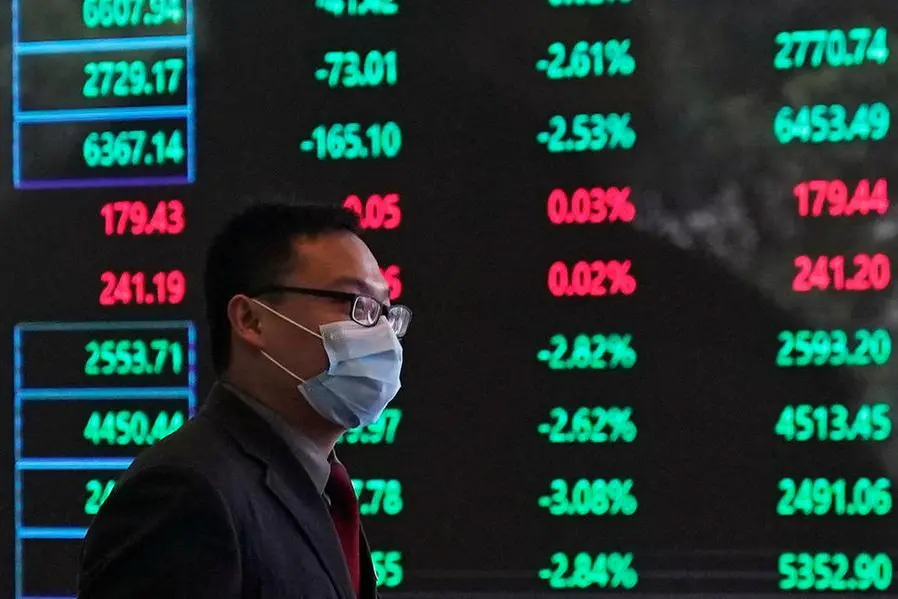PHOTO
China stocks fell again on Monday after last week's savage sell-off, but losses were limited by another set of vows by regulators to stabilise the market and signs that state investors are buying into slumping small-caps.
The blue-chip CSI300 Index lost as much as 2.1% before ending up 0.7%, near levels last seen in 2019. The Shanghai Composite Index lost 1%, its sixth straight session of decline.
Last week, the Shanghai benchmark recorded its worst week since October 2018, leading many Chinese investors to vent their frustration and anger via social media, including a blog account of the U.S. Embassy in Beijing.
In an apparent effort to soothe the market, China's securities regulator vowed over the weekend to prevent abnormal market fluctuations and crack down on "vicious" short selling. On Monday, the watchdog said it would take forceful measures to prevent risks of margin calls.
"The national team should step up efforts to rescue the market," said Yang Delong, chief economist at First Seafront Fund Management. "The market has reached a critical moment."
State-backed investors - dubbed the "national team", have stepped up buying blue-chip funds to support the market in recent weeks, and on Monday, there were signs state firms were buying small-caps, which have tumbled recently.
Trading volume in exchange-traded funds tracking small-cap indexes the CSI500, CSI1000 and ChiNext surged on Monday.
Still, the CSI 1000 Index sank 6% on Monday, and the CSI500 Index fell 2.3%, amid lingering fears that many investors would be forced to unwind their leveraged bets.
Adding to investor pessimism, recent economic indicators showed no signs of improving, and the International Monetary Fund on Friday projected that China's economic growth would slow to 4.6% in 2024 and decline further in the medium-term with growth of about 3.5% projected in 2028.
The Hong Kong market remained relatively stable, with the Hang Seng benchmark down only 0.2%. The broad Asian shares fell after a robust U.S. jobs report dashed any expectations of a near-term interest rate cut from the Federal Reserve.
Geopolitical concerns also weighed on the market as the United States added more than a dozen Chinese companies to those it alleges are working with Beijing's military, as part of a broader effort to keep American technology from aiding China. (Reporting by Shanghai Newsroom; Editing by Mrigank Dhaniwala and Miral Fahmy)





















